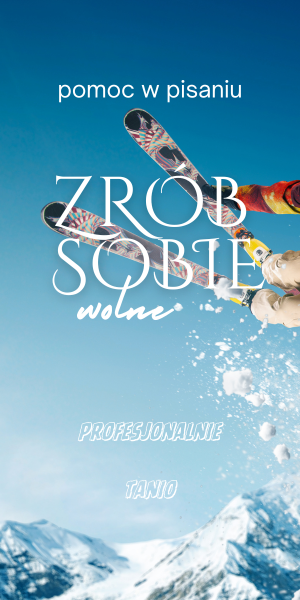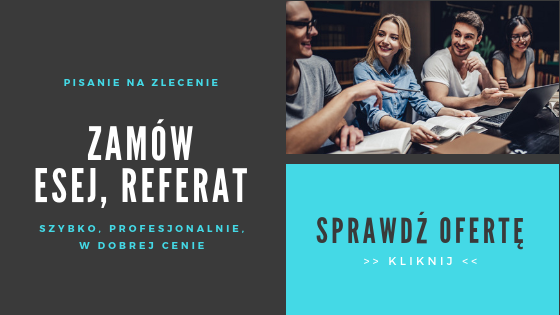We know the finalists of the 19th edition of the Science Communicator Competition. The winners of the competition will be announced on December 8.
The competition is organized by the Nauka w Polsce (Science in Poland) portal, published by the Polish Press Agency Foundation.
In this year’s 19th edition of the Science Communicator Competition, approximately 100 entries were submitted, and 84 of them were selected for evaluation.
The nominations are evaluated by a panel composed of representatives from the scientific community, science communicators, and representatives of the Nauka w Polsce portal. The proceedings are chaired by Prof. Michał Kleiber, Chairman of the Polish National Commission for UNESCO, a former President of the Polish Academy of Sciences, and a former Minister of Science and Information Technology, who is one of the initiators of the competition. The submissions were reviewed by Dariusz Aksamit, a Marsz dla Nauki (March for Science) activist, Dr. Ireneusz Kaługa from the EkoLogiczna Group, Prof. Andrzej Katunin, who popularizes topics including fractal geometry, Iwona Kieda representing the Institute of Animal Reproduction and Food Research of the Polish Academy of Sciences in Olsztyn, Dr. Magdalena Osial from IPPT PAN, the author of the “Manufaktura Naukowców” (Scientists’ Workshop) and “Fluffy Science” projects, Dr. Hab. Piotr Sułkowski from the University of Warsaw, known for the “Zapytaj fizyka” (Ask a Physicist) project, and Michał Szydłowski, known as Pan Korek, who conducts science shows for schools and during science festivals. The jury also includes Prof. Magdalena Fikus, a science communicator and co-organizer of the Warsaw Science Festival, Robert Firmhofer, the director of the Copernicus Science Center, Krzysztof Michalski, a science journalist at Polish Radio, Dr. Hab. Robert Mysłajek, a biologist and science communicator, and a representative from the editorial team of the Nauka w Polsce portal.
“The competition received very interesting entries covering a wide range of scientific fields, such as nanotechnology, medical and pharmaceutical sciences, linguistics, ethnology, folklore, social psychology, digital humanities, materials science, oriental studies, geology, and philosophy. The submitted individuals explain how to defend against online hate and provide insights into smart and meaningful exercise; they can discuss topics like radiation, drought, and even road tunnels, amphibians, bacteria, and ants! The candidates participate in mass events, such as festivals and science days, reaching their audience directly or through social media. Some have niche audiences, while others have a well-established and widely recognized brand. Among the entries are individuals and institutions that engage in science communication professionally and enthusiasts who do it passionately in their free time. It is very challenging to compare such diverse activities,” summarized Anna Ślązak from the Nauka w Polsce portal’s editorial team.
“During the evaluation, the panel paid attention to the originality of the activities, as well as their diversity and grassroots nature. Even the way the activities are described matters – whether the person applying (or nominating someone) can present the candidate’s activities and achievements well. Sometimes it is the impression of long-term, consistent activity, and sometimes it is the freshness of ideas, finding a niche, and creativity,” she added.
After the first round of evaluations, 21 entries have advanced to the finals. They are:
In the ANIMATOR category (5 finalists):
Mateusz Adam Baluk
Paweł Gora
Adam Matlak
Aleksander K. Smakosz
Filip Turza
In the SCIENTIST category (4 finalists):
Łukasz Lindner
Konrad Maj
Tomasz Miller
Natalia Schmidt-Polończyk
In the INSTITUTION category (4 finalists):
Experyment – Science Center
Museum of Computer and Information History
Robisz.to – Association
Uniwersytet Dzieci – Foundation
In the TEAM category (4 finalists):
Ars Alchemia
Biotechnology PBŚ, Bydgoszcz University of Technology
Mercury – Association
Educational and Training Department Team, National Center for Nuclear Research
In the MEDIA category (4 finalists):
Mikołaj Basiński, “Szukam w lesie” initiative
Science_mission (Dr. Hab. Eng. Katarzyna Siuzdak, Dr. Hab. Eng. Katarzyna Grochowska)
Radio naukowe (Science Radio)
Artur Wolski
The final results of the competition will be announced on December 8, 2023.
The winners will be determined by the jury in the second round of evaluations.
Awards will be given in five categories. The “scientist” category is for individuals who popularize science from the level of a doctor and above, while the “animator” category is for individuals conducting independent science communication activities without academic titles, such as students, doctoral students, and university administrative staff. The “team” category includes groups of science communicators, such as teams formed by scientists, science communicators, academic circles, and individuals working on joint projects for science communication. The “institution” category is open to scientific, non-scientific, or business institutions. The “media” category encompasses journalists, editorial teams of media outlets, bloggers, and teams creating websites.
The jury also selects the winner of the main award, who has outstanding achievements in the field of science communication. Honorable mentions may also be awarded.
Before the competition’s conclusion, the Nauka w Polsce portal will showcase the activities of the 21 finalists. This is a form of recognition for their work and a way to promote good examples and ideas for science communication.
In previous editions, dozens of outstanding science communicators have been recognized, including the natural philosopher Rev. Prof. Michał Heller, neurobiologist Prof. Jerzy Vetulani, medical knowledge communicator Prof. Piotr Rzymski from the University of Medical Sciences in Poznań, television program creator Wiktor Niedzicki, astronomy popularizer Karol Wójcicki, the “Crazy Nauka” duo, creators of the “Nauka o klimacie” (Climate Science) portal, and institutions such as the Copernicus Science Center, the Polish Academy of Children, the Nencki Institute of Experimental Biology, and the Science Popularization Center of the Silesian University of Technology in Gliwice.
The winners of the previous edition are: Dr. Paweł Grzesiowski, a pediatrician, president of the Institute for Infection Prevention, expert of the Supreme Medical Council for epidemic threats (main award), Dr. Hab. Wiktor Kotowski from the University of Warsaw – involved in the protection of wetland ecosystems in Poland and worldwide, Lubelski Festiwal Nauki, WroSpace Association from Wrocław, Agnieszka Krzemińska – science journalist for the “Polityka” weekly, and Stanisław Łoboziak from the Copernicus Science Center.










